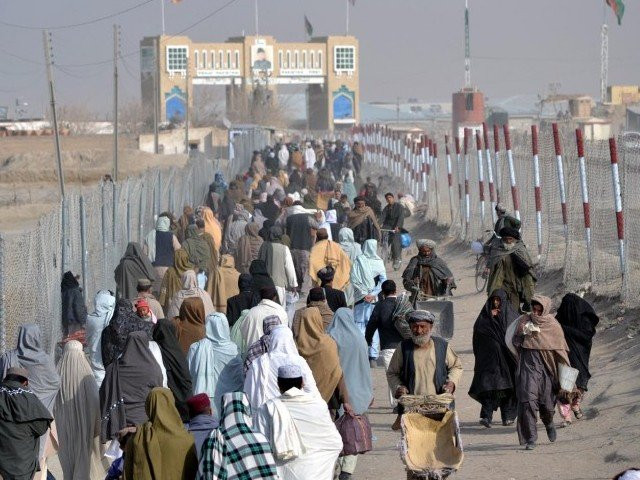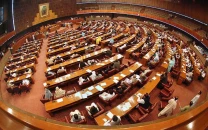Despite demand: Pakistan won’t divert $200m to refugee repatriation
World community had asked Islamabad to utilise a portion of the amount it pledged for Afghan development

PHOTO: INP
A senior government official told The Express Tribune that the maximum number of Afghan refugees had left for their homeland in 2016 primarily due to the payment of US$400 (Rs44,248) per person by the United Nations High Commissioner for Refugees (UNHCR) to each Afghan refugee.
Malala Yousafzai to release book based on refugees' real lives
“The UNHCR has now halved this incentive which has adversely affected the repatriation process. However, international agencies have now asked Pakistan to divert US$200 million out of US$500 million which it pledged to the government of Afghanistan for their development,” he said.
Pakistan is of the view that the repatriation of Afghan refugees is an international issue and should not be dealt with bilaterally. Pakistan will, therefore, not be contributing another $200 per person to their repatriation as they are primarily the responsibility of the international community, the UNHCR, and Kabul.
The official said this amount is being requested to be given from the $500 million that Pakistan had promised to contribute to the development of Afghanistan. However, Pakistan intends to use the amount for its designated purpose as its contributions to Afghan development will be more visible and project a better image of the country as compared to piecemeal payments to individual refugees.
He said the return of Afghan refugees in 2016 was due to conductive conditions prevailing in Afghanistan, which have since deteriorated. This situation is likely to get even worse in the next couple of months and the refugees are not likely to be lured right now with a monetary incentive, he said.
The government believes that return of Afghan refugees should be gradual and voluntary and with dignity and honour. However, this option of voluntary return is available to only to those who have a Proof of Registration (PoR) card. Others residing in Pakistan illegally cannot exercise this option.
Afghan refugees:US averse to Pakistan’s repatriation plan
States and Frontier Region Ministry (Safron) submitted a plan to the cabinet in its meeting held on January 31. The meeting had approved an extension in the validity of the PoR cards and tripartite agreement till March 31, 2018, and directed Safron to resubmit other proposals in the next cabinet meeting.
Safron submitted different proposals in a meeting of cabinet held last month. The cabinet was requested to extend the validity of the PoR cards and tripartite agreement till June 30, 2018.
It also asked to approve diverting US$200 million out of US$500 million already pledged by Pakistan to Afghanistan for payment to Afghans as resettlement grant after three months of their repatriation.
It also requested to identify undocumented and unregistered Afghans immediately and deport them under section 14 of the Foreigners Act. Deportation plan should be executed by Interior division and provincial governments.
Safron proposed to form committees on federal and provincial levels for implementation and monitoring progress on deportation. It requested to provide funds to provincial governments and relevant federal ministries and departments by finance division.



















COMMENTS
Comments are moderated and generally will be posted if they are on-topic and not abusive.
For more information, please see our Comments FAQ